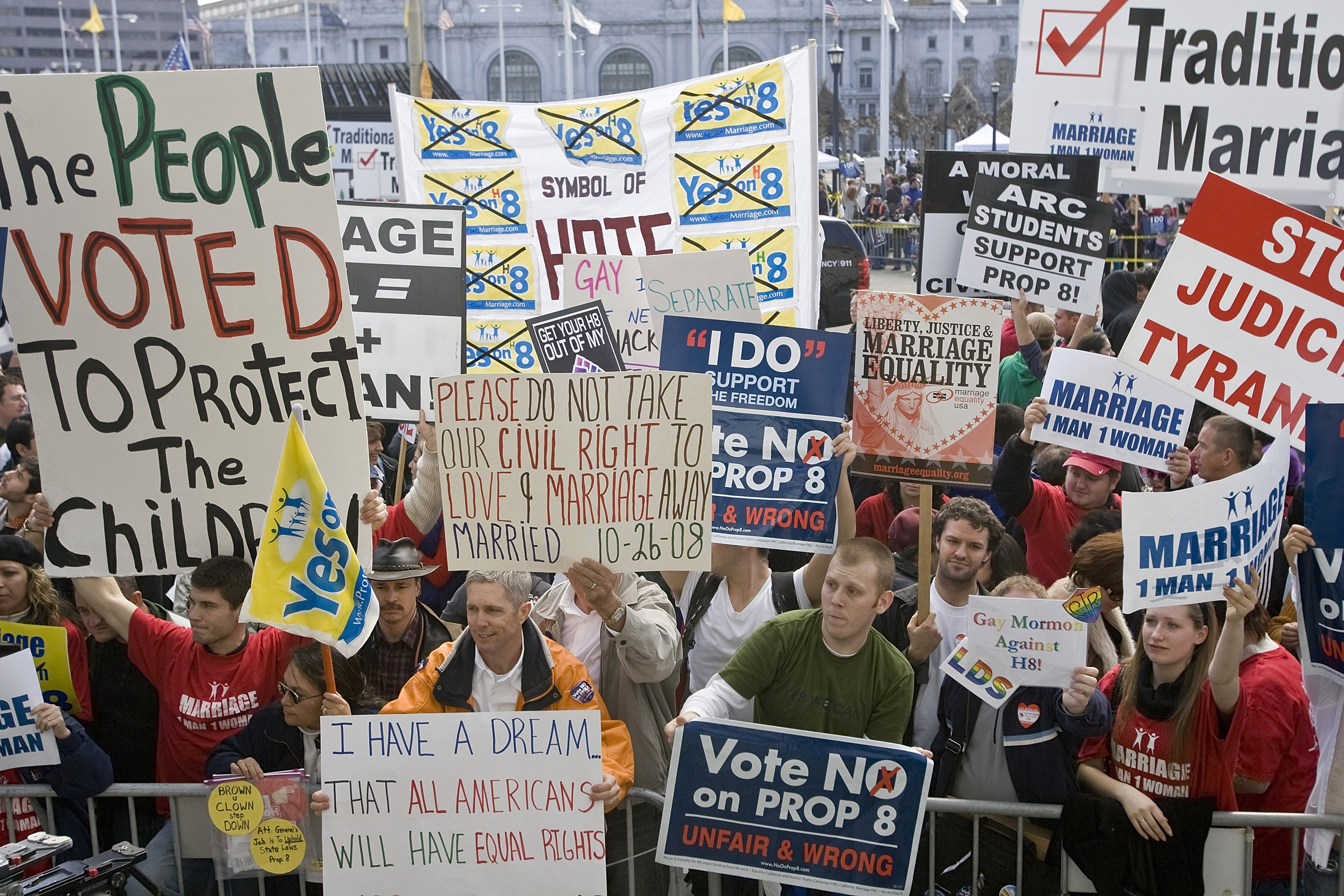While you wait on tomorrow's action, here are four possible legal scenarios around the Prop. 8 ruling:
- The U.S. Supreme Court could affirm the 9th Circuit decision that invalidated Prop. 8's constitutionality. Such a ruling would legalize same-sex marriage in California. It could potentially go beyond California and legalize same-sex marriage nationwide.
- The court could dismiss the case by ruling that the petition for review should never have been granted. This would leave the 9th Circuit Court's decision that Prop. 8 is unconstitutional as the final binding decision. This ruling, however, was narrowly defined and would likely pertain solely to California.
- The court could hold that the Prop. 8 backers lack standing under the federal law to appeal. This would vacate the 9th Circuit's decision, leaving U.S. District Court Judge Vaughn Walker's ruling that Prop. 8 is unconstitutional as final, making same-sex marriage legal in California. However, this would leave open the possibility that Prop. 8 supporters could challenge whether that ruling applies statewide.
- The court could reverse the 9th Circuit, upholding Prop. 8 as valid. This would mean that same-sex marriage would continue to be illegal in California, unless another state proposition overturns Prop. 8.
Legal analyst Vikram Amar told KQED's Scott Shafer earlier this month that a broad decision declaring a fundamental nationwide right to same-sex marriage is highly unlikely. “It's very rare for the court to invalidate the laws of two-thirds or three-quarters of the states,” Amar said. He noted that when bans on interracial marriage were struck down in 1967, only 16 states had such laws -- compared with 35 that now ban gay marriage.
SCOTUSblog also has a good analysis of both the Prop. 8 and DOMA cases.
It should also be noted that polls have shown a remarkable swing in favor of same-sex marriage since voters approved Prop. 8 in 2008. So even in a worst-case scenario for those who support same-sex marriage -- that California's ban is upheld -- a ballot initiative in 2014 could well overturn the law. Last week, state Senate President Pro Tem Darrell Steinberg said the Senate may act to place a repeal of Prop. 8 on the ballot should same-sex marriages remain illegal in the state. Such a measure would require a two-thirds vote of the Legislature for it to be placed before voters. LGBT advocates could also place a measure on the ballot.
DOMA
DOMA is a 1996 federal law that defines marriage as between only a man and a woman. It prevents those who are in same-sex marriages from receiving a host of federal benefits, such as the ability to file a joint tax return. In the case before the court, a widow was forced to pay $363,000 in inheritance taxes after her female spouse died, a liability she would not have incurred if she'd been married to a man. A federal appeals court ruled that provision of DOMA was unconstitutional. Another provision, requiring states to recognize only opposite-sex marriages performed in other states, is not at issue here.
